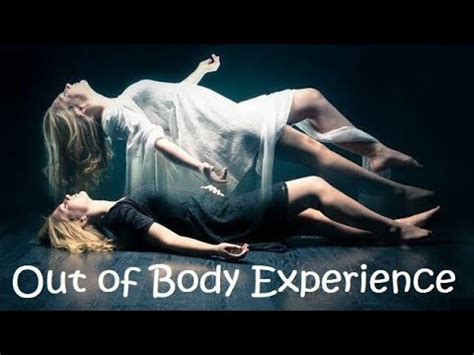Out-of-body experiences (OBEs) have long fascinated humans, sparking debates about the nature of consciousness, the mind-body connection, and the possibility of life after death. Despite their mystifying nature, OBEs are relatively common, with studies suggesting that up to 15% of the general population has had an OBE at some point in their lives. In this article, we will delve into the world of OBEs, exploring their history, causes, characteristics, and the various theories that attempt to explain this phenomenon.

History of OBEs
Accounts of OBEs can be found in ancient cultures and civilizations, including ancient Egypt, Greece, and China. In many of these cultures, OBEs were seen as a way of communicating with the divine or accessing other realms of existence. For example, in ancient Egypt, the "ba" was believed to be a spiritual entity that could leave the physical body and travel to other realms.
In modern times, the study of OBEs began to take shape in the 19th century with the work of psychical researchers such as Frederic Myers and William James. These researchers were interested in exploring the possibility of survival after death and the nature of consciousness.
Causes of OBEs
While the exact causes of OBEs are still not fully understood, research has identified several factors that may contribute to their occurrence. These include:
- Neurological factors: OBEs have been linked to various neurological conditions, such as epilepsy, migraine, and cerebral trauma.
- Psychological factors: OBEs can be triggered by stress, anxiety, and other psychological states.
- Sleep and dreaming: OBEs can occur during sleep and dreaming, particularly during the rapid eye movement (REM) stage.
- Sensory deprivation: OBEs can be induced through sensory deprivation techniques, such as floatation therapy.
Characteristics of OBEs
OBEs are characterized by a sense of separation from one's physical body, often accompanied by a sense of floating or flying. Other common characteristics of OBEs include:
- Visual and auditory perceptions: OBEs often involve vivid visual and auditory perceptions, which may be similar to or different from those experienced in the physical world.
- Sense of freedom: OBEs can be accompanied by a sense of freedom and liberation from the physical body.
- Sense of control: OBEs can also involve a sense of control and agency, allowing individuals to manipulate their surroundings.
Theories of OBEs
Several theories have been proposed to explain the phenomenon of OBEs. These include:
- Neurological theories: These theories propose that OBEs are the result of abnormal brain activity, particularly in regions involved in self-perception and spatial awareness.
- Psychological theories: These theories suggest that OBEs are the result of psychological factors, such as stress, anxiety, and dissociation.
- Parapsychological theories: These theories propose that OBEs are evidence of paranormal phenomena, such as telepathy and clairvoyance.

Practical Applications of OBEs
While OBEs are often seen as a fascinating but fringe phenomenon, they have several practical applications. These include:
- Personal growth and development: OBEs can be used as a tool for personal growth and development, allowing individuals to access new states of consciousness and gain insights into their lives.
- Therapeutic applications: OBEs have been used in therapeutic settings to help individuals overcome psychological trauma and anxiety disorders.
- Creative inspiration: OBEs can be a source of creative inspiration, allowing individuals to access new ideas and perspectives.
Conclusion
Out-of-body experiences are a fascinating and complex phenomenon that continues to capture the imagination of humans. While the exact causes and mechanisms of OBEs are still not fully understood, research has shed light on their history, characteristics, and practical applications. Whether seen as a paranormal phenomenon or a neurological anomaly, OBEs offer a unique window into the nature of consciousness and the human experience.






FAQ Section
What is an out-of-body experience?
+An out-of-body experience (OBE) is a phenomenon in which a person experiences a sense of separation from their physical body, often accompanied by a sense of floating or flying.
What causes out-of-body experiences?
+The exact causes of OBEs are still not fully understood, but research has identified several factors that may contribute to their occurrence, including neurological factors, psychological factors, sleep and dreaming, and sensory deprivation.
Are out-of-body experiences real?
+The reality of OBEs is a topic of ongoing debate, with some researchers arguing that they are a paranormal phenomenon and others proposing that they are the result of abnormal brain activity or psychological factors.
